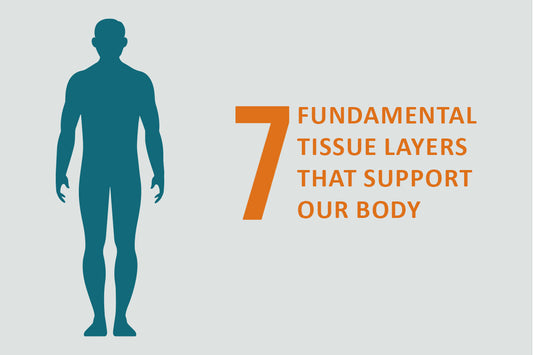Healthy Eating for Your Peak Athletic Performance
Athletes are always striving for peak performance, and one of the most important factors influencing athletic performance is diet. Whether you are a professional athlete or just enjoy physical activity, what you eat can significantly impact your energy levels, muscle growth, and overall health. This blog will guide you through the essential components of a diet that supports optimal athletic performance.
Understanding Your Energy Sources
Energy is the cornerstone of athletic performance. The primary sources of energy for athletes include carbohydrates, fats, and proteins. Carbohydrate foods, such as whole grains, fruits, and vegetables, are particularly important as they provide quick energy for intense physical activity. When planning your meals, focus on incorporating a variety of carbohydrate-rich foods to ensure you have a steady supply of energy. This helps maintain stamina and endurance during workouts and competitions.
The Role of Carbohydrates
Carbohydrates are the body's preferred energy source, especially during high-intensity exercise. They are stored in the muscles and liver as glycogen, which can be rapidly mobilized to fuel physical activity. Including complex carbohydrates like whole grains, fruits, and vegetables in your diet ensures a sustained energy release. Simple carbohydrates, found in foods like fruits and dairy products, provide quick energy bursts. Striking a balance between these types of carbohydrates helps maintain energy levels and supports peak performance.
The Importance of Lean Protein
Protein plays a critical role in muscle growth and repair, making it an essential nutrient for athletes. Consuming adequate grams of protein is necessary to support muscle recovery after workouts. Lean protein sources, such as lean meats, poultry, fish, beans, and plant-based proteins like tofu and tempeh, should be included in your diet. Female athletes, in particular, may benefit from paying extra attention to their protein intake to support muscle health and overall performance.
Healthy Fats for Sustained Energy
While carbohydrates provide quick energy, fats are important for long-term energy storage. Healthy fats, found in foods like avocados, nuts, seeds, and olive oil, help enhance endurance and support overall health. Including a moderate amount of healthy fats in your diet can improve energy levels and help maintain body functions.
The Power of Plant-Based Diets
A plant-based diet, rich in fruits, vegetables, whole grains, and legumes, offers numerous benefits for athletes. Plant-based foods are packed with vitamins, minerals, and antioxidants that support overall health and athletic performance. They also contribute to better blood pressure regulation and cardiovascular health. Including a variety of plant-based foods in your diet can help you achieve peak performance and maintain good health.
Bone Health and Athletic Performance
Bone health is crucial for athletes, as strong bones are less prone to fractures and injuries. Consuming foods rich in calcium and vitamin D, such as dairy products, leafy greens, and fortified plant-based milks, helps maintain bone density and strength. Ensuring adequate intake of these nutrients supports bone health and enhances athletic performance.
Vitamins and Minerals: The Unsung Heroes
Vitamins and minerals are vital for various bodily functions and athletic performance. They play a role in energy production, muscle function, and immune support. Fruits and vegetables are excellent sources of essential vitamins and minerals. Incorporating a rainbow of colorful fruits and vegetables into your diet ensures you get a wide range of nutrients to support overall health and athletic performance.
Hydration: The Key to Peak Performance
Staying hydrated is crucial for maintaining peak performance. Dehydration can lead to fatigue, decreased coordination, and impaired athletic performance. Drinking plenty of water and consuming hydrating foods like fruits and vegetables helps maintain fluid balance in the body. During intense workouts or competitions, consider electrolyte-rich beverages to replenish lost minerals.
Meal Timing for Optimal Performance
When you eat is just as important as what you eat. Consuming a balanced meal with carbohydrates, protein, and healthy fats about 3-4 hours before exercising provides your body with the necessary fuel. A small snack rich in carbohydrates and protein about 30-60 minutes before physical activity can provide an extra energy support. After exercising, a meal or snack with protein and carbohydrates within 30 minutes helps enhance muscle recovery and replenish glycogen stores.
Special Considerations for Female Athletes
Female athletes have unique nutritional needs due to hormonal fluctuations and higher risk of nutrient deficiencies. Ensuring adequate intake of iron-rich foods, such as lean meats, fish, beans, and leafy greens, is essential for maintaining energy levels and overall health. Calcium and vitamin D are particularly important for female athletes to support bone health and prevent injuries. A balanced diet that includes a variety of nutrient-dense foods helps female athletes perform at their best.
Practical Tips for Healthy Eating
- Plan Your Meals: Prepare balanced meals with a mix of carbohydrates, lean protein, and healthy fats. Include a variety of fruits and vegetables to ensure you get a range of vitamins and minerals.
- Stay Hydrated: Drink plenty of water throughout the day and during workouts. Include hydrating foods like fruits and vegetables in your diet.
- Snack Smart: Choose healthy snacks like nuts, seeds, yogurt, and fruit to keep your energy levels up between meals.
- Listen to Your Body: Pay attention to how your body responds to different foods and adjust your diet accordingly to support your athletic goals.
- Seek Professional Advice: Consult a sports nutritionist or dietitian to create a personalized nutrition plan that meets your specific needs and goals.
Conclusion
Eating healthy is not just about enhancing athletic performance but also about maintaining overall health and well-being. By focusing on balanced meals that include a variety of energy sources, lean protein, healthy fats, and plenty of fruits and vegetables, you can support your body's needs and achieve peak performance. Remember, every athlete is unique, so it's important to find a nutrition plan that works best for you. Prioritize your diet, stay hydrated, and enjoy the journey to becoming the best athlete you can be.






